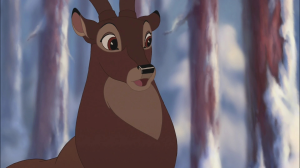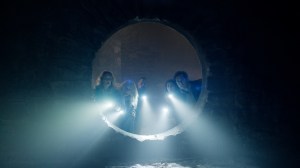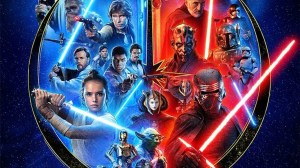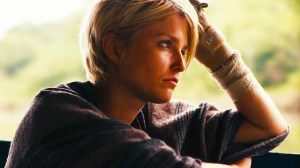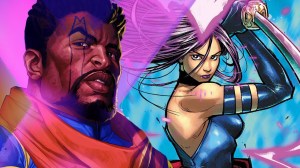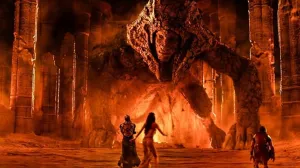The classic animated films produced by Walt Disney Animation Studios are often viewed as eternal classics. That’s not shocking, as many of these films do stand the test of time, becoming cultural touchstones passed down from parents to children. However, not all of the studio’s early productions have aged with the same grace. While many remain celebrated, some Disney productions carry the unfortunate baggage of outdated and offensive cultural depictions. One such film, an animated feature launched 84 years ago to this day, has become one of the most controversial entries in the entire Disney library, containing stereotypes that are impossible to ignore in a modern context.
Videos by ComicBook.com
On October 23, 1941, Walt Disney Productions released its fourth animated feature film, Dumbo. The movie tells the story of a baby circus elephant who is cruelly nicknamed for his abnormally large ears. After his mother is locked away for protecting him from bullies, Dumbo is ostracized and humiliated by the other circus animals. With the help of his only friend, a mouse named Timothy, Dumbo discovers that his oversized ears give him the incredible ability to fly, turning his greatest insecurity into a triumphant gift. The film was a financial success for the studio and even won an Academy Award for its musical score, but as time went by, it became increasingly problematic.
Why Is Dumbo So Controversial?

Dumbo‘s racist caricatures have made the film a subject of intense scrutiny. Its most glaring and widely criticized example is the depiction of a group of crows who appear to help Dumbo learn to fly. These characters are presented as unambiguous stereotypes of African Americans, speaking in jive and performing jazzy, gospel-style songs. The most damning detail is the name of their leader: Jim Crow. This is a direct reference to the racist minstrel show character from the 19th century, whose name became synonymous with the brutal segregation laws that enforced racial inequality across the American South. What’s worse, the lead crow was voiced by a white actor, Cliff Edwards, in what is now widely seen as the vocal equivalent of blackface.
The crows are not the only deeply problematic element in Dumbo. An early sequence features the song “Song of the Roustabouts,” which is performed by a group of faceless, dark-skinned laborers as they set up the circus tent in a storm. The lyrics sung by these characters, self-called “happy-hearted roustabouts,” glorify their own exploitation with lines like, “We work all day, we work all night. We never learned to read or write,” and “When other folks have gone to bed, we slave until we’re almost dead.” The dehumanizing depiction of these Black workers, combined with lyrics that make light of their illiteracy and grueling labor, presents a callous portrayal of their circumstances. The sequence even includes an off-screen voice shouting, “Grab that rope, you hairy ape,” an obvious racist remark.
In recent years, The Walt Disney Company has taken steps to acknowledge the harmful content in its older films. On the Disney+ streaming service, Dumbo is preceded by a content warning that states, “This program includes negative depictions and/or mistreatment of people or cultures. These stereotypes were wrong then and are wrong now.” Furthermore, the crows were entirely removed from Tim Burton’s 2019 live-action adaptation of Dumbo, a clear signal that the studio recognizes the characters as indefensible stereotypes. These acknowledgments, however, do not erase the original film’s history, which is still a great example of how media can perpetuate damaging ideas even in family-friendly productions.
What are your thoughts on Dumbo? Leave a comment below and join the conversation now in the ComicBook Forum!

